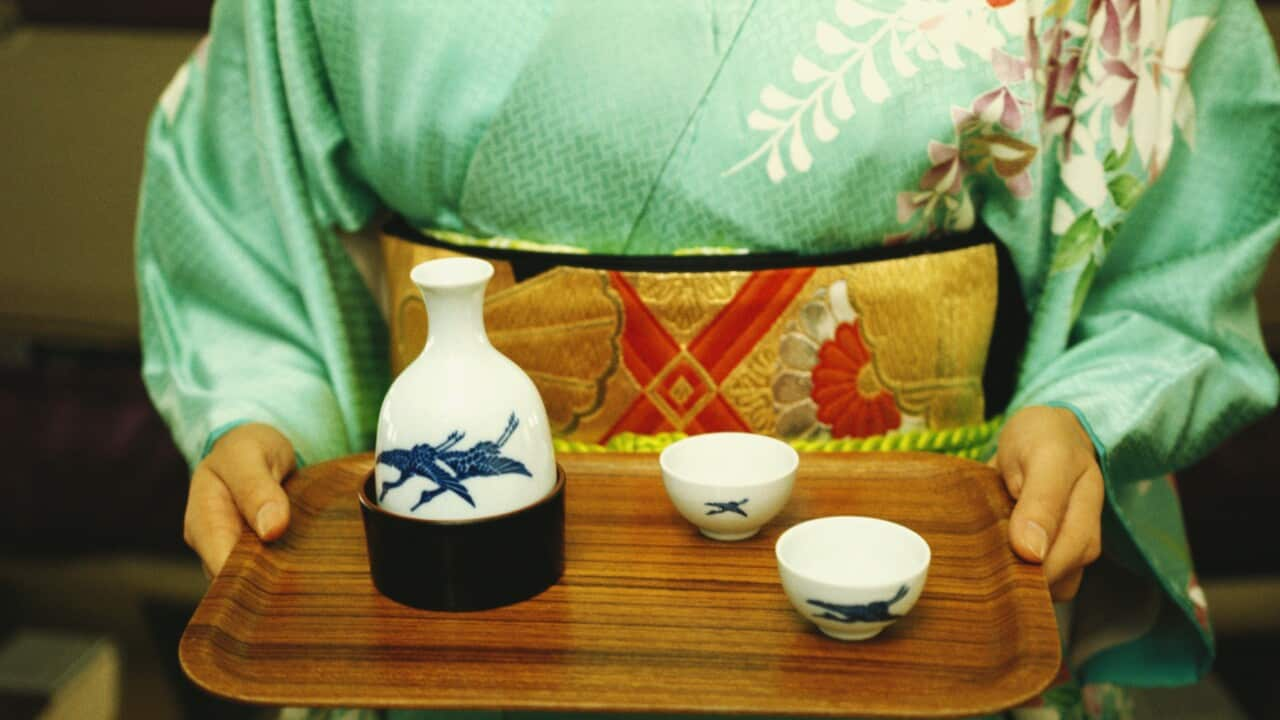Key Points
- Japanese consumption of sake has shown a continuous decline since its peak in 1973
- The popularity of sake outside of the country has soared in the recent years
- Australia is the seventh biggest market for Japanese sake and will host its first dedicated sake festival in October
Japan's alcoholic beverage market has been shrinking for years, due to an ageing population, declining birth rates and healthier lifestyle choices.
The pandemic has further accelerated the process, such that the Japanese government recently launched the “Sake Viva” campaign, encouraging people to pitch in ideas to help revitalise the industry.
Among the hardest hit industries is sake - the national beverage, also known as nihonshu, made from fermented rice - whose consumption has shown a continuous decline since its peak in 1973.

The domestic alcoholic beverage market of Japan has been shrinking Credit: xavierarnau/Getty Images
He says the 40-to-50-year-old age bracket, traditionally seen as the “heavy users of Japanese sake”, has evolved.
“These people are either choosing to drink something other than sake or simply drinking less,” he tells SBS Japanese.

Hitoshi Utsunomiya, President of Japan Sake and Shochu Makers Association Credit: Hitoshi Utsunomiya Credit: Hitoshi Utsunomiya
New markets
Despite the decline at home, sake's popularity has soared elsewhere in recent years, providing a beacon of hope to the industry.
According to data released by Japan's National Tax Agency in April this year, sake exports from January to December 2021 totalled 1.2 billion Australian dollars, topping 1.1 billion dollars for the first time and marking a 61.4 per cent increase over the previous period.
Australia, too, has shown a steady increase in sake popularity, with imports from Japan growing over seven-fold from 10 million Australian dollars in in 2009 to 73 million dollars in 2021, making it the seventh largest market for Japanese sake in the world.
Tsuyoshi Endo recently hosted Australia's inaugural Sake Awards and is about to launch the Australian Sake Festival in Sydney on October 1.
Mr Endo says Japan's young population are spoiled for choice nowadays, such that sake may not be attractive as it used to be decades ago.
However, he feels markets like Australia, where sake recognition and knowledge is still low, show immense potential for improvement.

Tsuyoshi Endo's passion for Japanese sake has led him to organise Australia's first Sake Awards and Sake Festival Credit: Tsuyoshi Endo
Sake should be more known. It should be given a lot more value.Tsuyoshi Endo, Australian Sake Festival organiser
These thoughts were what led Mr Endo to organise Australia’s first Sake Awards earlier this month, which gathered more than 60 judges to select sake with the best suitability for the Australian market.
Mr Utsunomiya says such localised competitions are crucial for the industry, as people’s taste preferences can differ significantly from place to place.

Australia's first sake awards in Sydney, 17 September 2022 Credit: Hiroto Yamada
Sake Samurais
Leading the panel of judges at the awards was Simone Maynard, who was recently ordained as a “Sake Samurai” - a title bestowed by the Japan Sake Brewers Association Junior Council on those who show passion to promote the beverage.
The order of Sake Samurais was introduced in 2005 to restore "pride in sake" and to promote the Japanese culture, not just within the country but throughout the world.
There are currently around 100 sake samurais globally, and Ms Maynard is the fourth Australian, following renowned chef Tetsuya Wakuda, sake ambassador Andre Bishop and Yukino Ochiai of Déjà Vu Sake Co.
Ms Maynard, who has had a “deep fascination and love towards the Japanese culture” since she was young, fell in love with sake when she first visited the country in 2003.

Simone Maynard is the fourth Sake Samurai of Australia Credit: Simone Maynard
Based in Melbourne, she shares her knowledge and passion for sake through tasting experiences, masterclasses, pairing dinners and collaboration opportunities.
Ms Maynard says it's “sad” to see the decline in sake consumption in Japan, but she is also hopeful that growing popularity overseas can bring in a new generation of sake drinkers who will see how “unique, important and wonderful this national beverage is”.
She says the Sake Awards will help “solidify our place on the sake map” and create wider exposure for sake within Australia.
“I believe it will also help strengthen the relationship between Japanese brewers and Australia.”
I hope for people to have and keep an open mind when it comes to sake.'Sake Samurai' Simone Maynard
“Just like wine, you might not enjoy the first one you try or there will be some you enjoy more than others. I want people to bury any misconceptions they might have about sake and to understand that premium sake is a wonderful world to discover and explore,” she says.
The Australian Sake Festival is slated for Sydney on October 1, which is also World Sake Day.
Tickets to the event, which will showcase some 200 varieties of sake along with food stalls and entertainment, sold out weeks in advance.
Mr Endo says he is “absolutely surprised” by the demand.
He hopes to use the event to further increase awareness of sake among the Australian public and to cultivate long-term fans of the beverage.
“Sake is a Japanese culture. I hope that by providing more contact points, the consumers will be able to further deepen their understanding and enjoy Japanese sake.”
In Australia, you must be 18 or older to buy or drink alcohol. When drinking, enjoy in moderation.
Listen to SBS Japanese Radio on Tue, Thu and Sat from 10pm
You can listen to our past stories from our
